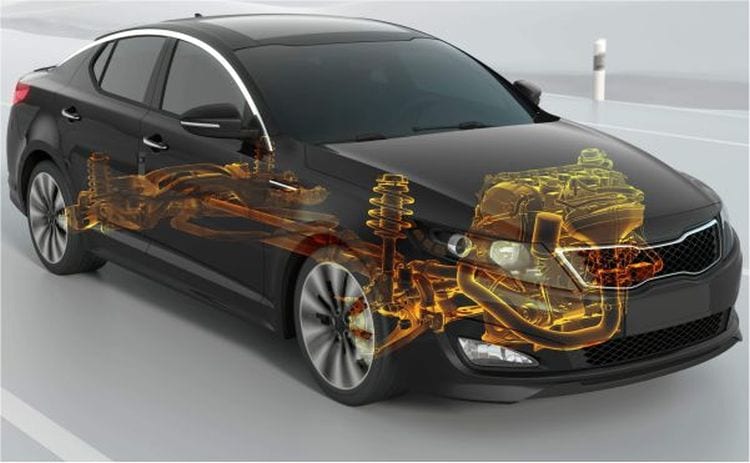When people think of their car, we generally think of it in parts. People regularly get their tires rotated or replaced, for example, or they go into the shop to get new oil. What people don’t understand, however, is that their vehicle would barely get out of the driveway without the proper lubricants.
Thus, the function of car lubricants is very important not only for your engine performance but for various parts and joints throughout the vehicle. And depending on the age and wear on your vehicle, the types of lubrication you need can vary.
The first thing you should know is that you will find the type of lubricant that your car carries in its maintenance manual or in the vehicle’s technical data sheet. The indications in the maintenance book of a car inform owners of the viscosity, standards and approvals that an oil must meet.
You cannot use any car lubricant. It is very important not to mix engine oil with different viscosities since they would lose their properties. But if you are curious about how many different types of vehicle lubricants there are on the market today, here is a guide to assist you.
Types of Car Lubricants
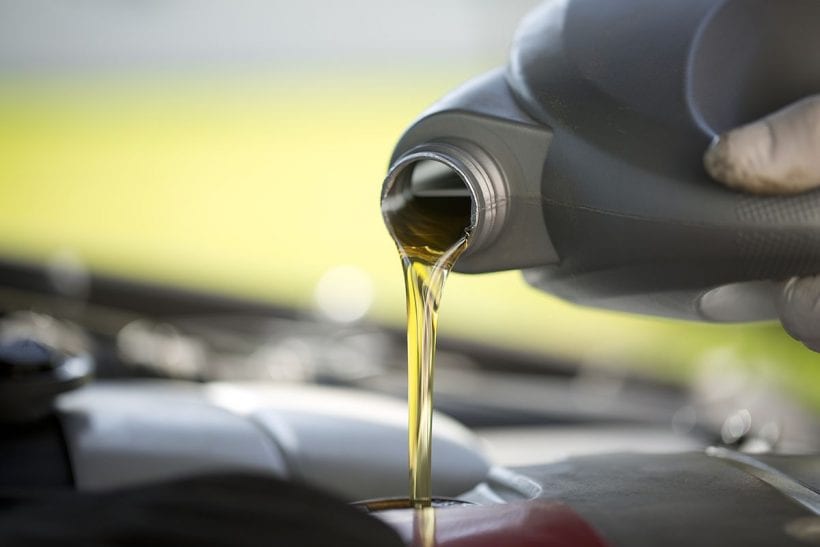
Depending on the type of car oil used in the composition of the engine lubricant, we can find three different types: natural lubricants, semi-synthetic lubricants and synthetic lubricants. They all have different characteristics that will define their use in one engine or another.
Synthetic Lubricants

These oils are treated in the laboratory after being distilled and are of higher quality. All oil residues that may harm the engine are removed. They have a longer life and improve the engine in terms of power and resistance.
Semi-Synthetic Lubricants
Its composition is based on a large proportion of mineral oil and a small part of synthetic oil. In this way the price is reduced and the quality of the oil is improved.
Mineral Lubricants
They are the least used today, as they are intended for vehicles before 1995. They are not treated in laboratories, so cars must change the engine oil at least once a year, but they are cheaper than other types of lubricants.
What do the letters of car lubricants mean?
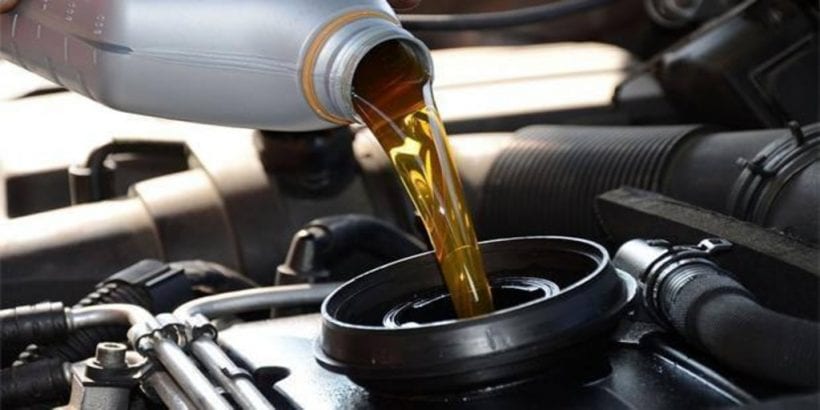
Now that you know the three different types of engine oil that exist, you should also know what the letters of car lubricants represent. According to these specific approvals, you can find lubricants for different engines. Remember that your car must carry the engine lubricant specified in the manufacturer’s book.
LETTER W
The letter W in car lubricants means “Winter” and marks the value of oil viscosity at low temperatures. If for example you take a 15W 40 oil, it means that the viscosity, at room temperature, is 15 and that the viscosity will be 40 at the engine operating temperature.
SAE LETTERS
The letters SAE stands for Society of Automotive Engineers and mark the viscosity rating index. With the previous example, 15W 40, you would have to look at the number 40. It is the real viscosity of car lubricants when the engine is running so it works with an SAE 40 grade.
API LETTERS
To read API you have to remember that they refer to the American Petroleum Institute, an association that represents 400 companies that work hand in hand with oil and natural gas. This symbol, with a star, will mark if that lubricant is valid for your car depending on the type of engine.
API SG or SH: The manufacturer certifies this lubricant suitable for four-stroke engines.
API TC: It is the standard identification that classifies car lubricants for two-stroke engines.
ISO-L-EGB, EGC or EGD: It is the international identification for two-stroke engines.
Japanese manufacturers have their own signaling to determine if an oil is valid for one type of engine or another:
JASO MA or MB: The lubricants of vehicles with these letters will be for four-stroke engines.
JASO FA, FB, FC or FD: It is the Japanese identification of car lubricants for two-stroke engines.
What lubricant does my car need?
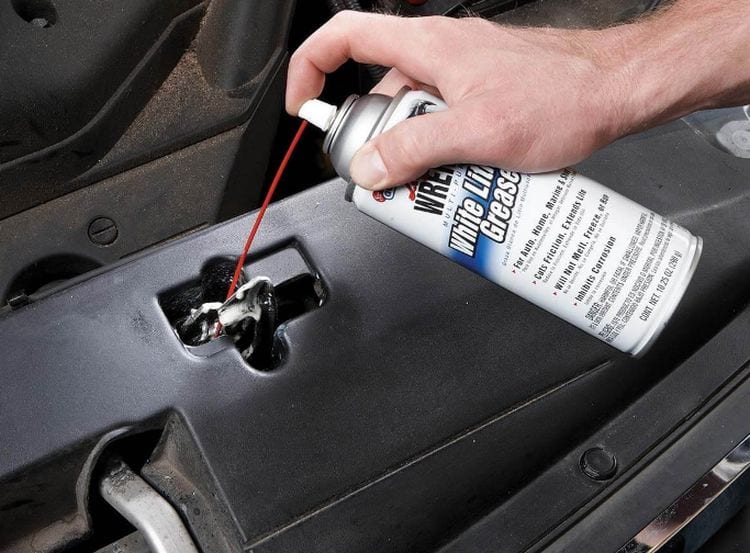
After knowing all the peculiarities that characterize the different types of car lubricants, surely there are several questions going through your head right now: what lubricant does my car have? What oil to choose for my car?
Essentially, the oils meant for your vehicle should be covered in your owner’s manual. In fact, it should give you several options to choose from according to SAE regulations. You can adapt car lubricant to the condition of the car, depending on the age and use you give it. Oil manufacturers like Citgo Lubricants generally have a page that breaks down all of their products by the grades, which can help immensely in the search for the right oils and lubricants.
Car mechanics can advise you if you have any questions about the different types of car lubricants you can put in your car. So, if you have any problem when buying car lubricant, a car expert will be happy to help you.
What are the car fluids I should check and change?
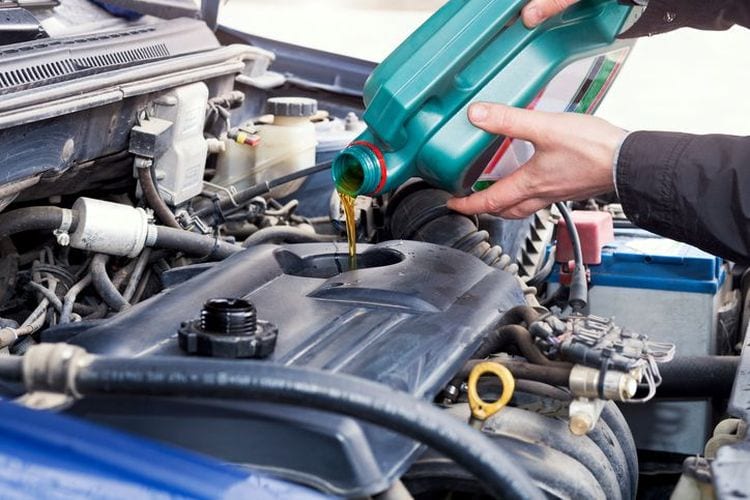
Once you know what are the main lubricants of the car, it’s important to take other fluids into account when doing the maintenance of the vehicle.
Using the wrong car fluids causes problems, so it’s recommended you always check the maintenance book and rely on your nearest mechanic for control and maintenance. To avoid adding inaccurate volume into your vehicle, you can always rely on an automated fluid dispenser such as the ones from Technodigm to deliver precise and accurate fluid.
Car fluids that you should check periodically are:
Brake Fluid Change
Can you use any brake fluid for my car? No, since fluids reinforce the brake pump and transmits it to the brake caliper. It needs to be able to withstand very high temperatures without boiling. Manufacturers recommend that you replace the brake fluid approximately every two years and check it every 20,000 miles.
However, you must always check the instructions given in the vehicle maintenance book. Brake fluids are referred to as DOT 2,3 and 4, the higher the number, the higher the boiling point. Do not mix different types of liquids. A mechanic will perform a test of the state of your brake fluid to determine if a change is needed. In addition, they have the appropriate equipment for diagnosis and replacement, including ABS systems that require the use of an electronic diagnostic machine.
Windshield Washer Fluid Change
You must use a specialized one and not use homemade liquids. If you use running water as a windshield washer fluid it may freeze and damage the pump. In addition, water lime can cause grounds, which block the spout. If you use products with alcohol such as windshield washer fluid, it will attack the rubber of the blade edge.
Coolant Change
In order for the engine to function properly, and to expel the heat correctly, it is essential that you use adequate antifreeze for your vehicle and consult a professional to know when it is advisable to change the coolant.
Engine Additives
There are other car fluids and engine treatments that a trained mechanic will show you so that you know them. This includes AdBlue liquids, engine treatments, injection cleaning, smoke treatment, radiator cap covers, among others.
Reducing friction between two metal surfaces, protecting mechanical parts from wear and corrosion, or cleaning and cooling the engines are some of the main functions associated with car lubricants.
Currently, in the market you can find different types of car lubricants depending on their composition, viscosity, or the type of engine of your vehicle. Knowing what type of lubricant your car requires is essential for the proper functioning of the engine.

